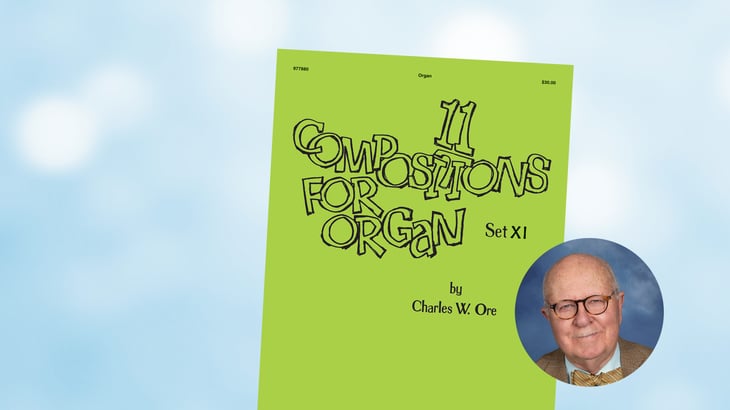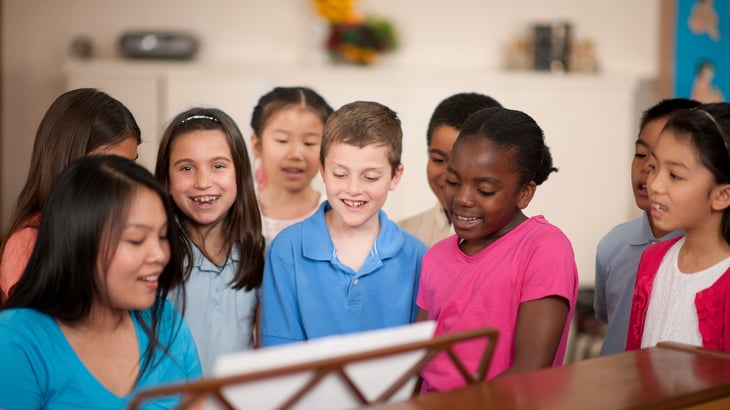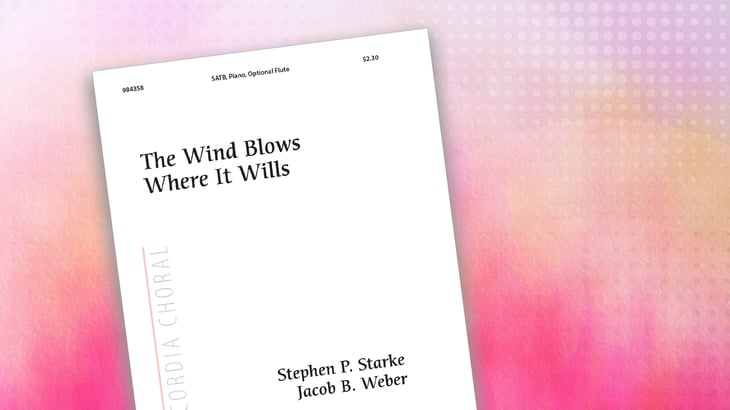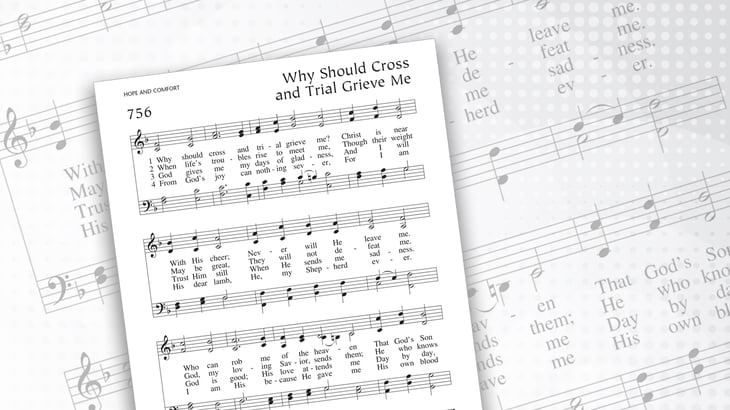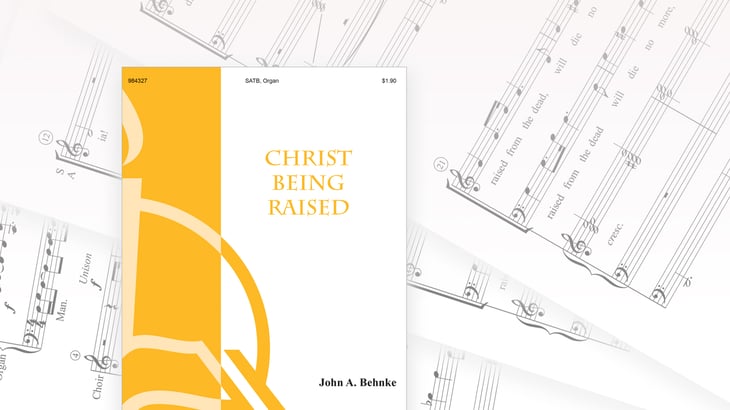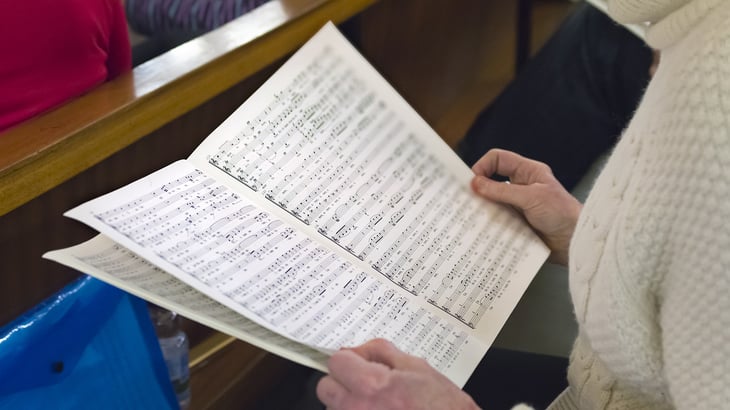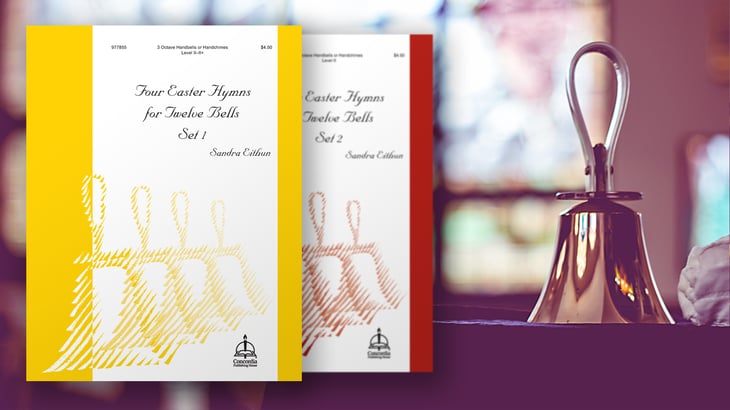Composer of the Month: Charles Ore
Charles Ore is a renowned organist, music teacher, and composer. His storied career spans more than sixty years, and his passion for liturgical music and education is unmatched. Ore’s notable work includes 11 Compositions for Organ and several choral pieces.
Uniting Church Hymns throughout Time and Place
This summer, One and All Rejoice, a new children’s hymnal for K–8 students, will be released. There are two hundred well-loved hymns along with newer songs debuting in this hymnal. Among them are six modern hymns that can be used throughout the Church Year. Learn more about the hymns below, and listen to them on the One and All Rejoice playlist.
Music of the Month: The Wind Blows Where It Wills
This year, May 31 is Pentecost Sunday, the day the Church celebrates the Holy Spirit coming to the disciples after Christ's resurrection and ascension. In preparation for the day and coming season of Pentecost, a new piece by Rev. Stephen P. Starke and Jacob B. Weber has been released. The piece includes a beautiful, lyrical melody and an optional flute part, which adds variety and structure to the tune.
On the Day of Pentecost, Jesus’ apostles were together in a house when a rush of wind from heaven filled the space. Then tongues of fire appeared above the apostles’ heads, and they were filled with the Holy Spirit. They went out to Jerusalem, speaking many different languages, and witnessed to people of all nations who were there (Acts 2:1–11).
Starke’s text is especially appropriate for the Day of Pentecost and the season following it as it reads:
Cling to Hymns in a Pandemic
This pandemic is certainly horrific, but I have found many positives during this time. One of these positives was a slower and more reflective Holy Week, allowing me to ponder and study Johann Sebastian Bach’s St. Matthew Passion and to write some lessons on it for my school. In this Passion, as the evangelist—St. Matthew—and the rest of the biblical characters narrate the story, Bach uses chorales to mark the communal response of all believers to the biblical events. These chorales, or hymns, can be seen as our congregational response to Christ’s saving work, much like our hymns act within the church service.
Composer of the Month: Paul Gerhardt
Paul Gerhardt (1607–76) is in a tier only with Martin Luther as the most beloved and celebrated Lutheran hymnwriters in the church today. Seventeen of Gerhardt’s 100-plus hymn texts are in Lutheran Service Book.
Music of the Month: Christ Being Raised
A perfect selection for the Easter season comes in this SATB anthem based on Romans 6:9. Beginning with joyous alleluias, the music rises in sequence, portraying the text “raised from the dead.” The melodic sequences and voice leading make the music easy to learn while still sounding dramatic and powerful.
Music during Tragedy
In October 1966, tragedy struck the Welsh town of Aberfan when heavy rainfall mixed with coal waste and caused a mountainside to collapse. The sodden coal waste slid down to the town, burying the primary school and the students inside. A total of 116 children died in the disaster.
The Women of Lutheran Service Book You Might Not Know About
Men have had an incredible impact on shaping Lutheran hymnody as it’s known today. From Paul Gerhardt to Dr. Carl Schalk, male hymnwriters have truly given Lutheranism foundational music that speaks volumes. But did you know that many female hymnwriters, hymn translators, and composers have also contributed to the creation of many Lutheran hymns? Read biographies below from Lutheran Service Book: Companion to the Hymns to learn about some of the wonderful women who helped bring Lutheran hymnody together for Christians everywhere to enjoy today.
Music of the Month: Four Easter Hymns for Twelve Bells
Sandra Eithun’s primary collection of popular Easter hymns and second set of popular Easter hymns are perfect for the busy Easter season, especially if you are shorthanded for church services or would like to travel with a small group ringers. Each piece uses only twelve bells, spanning F5 to C7. Because not every piece is in the key of F, these collections offer a wide variety of harmonic possibilities while still maintaining a small number of ringers. Scored for 3 octave handbells or handchimes. Set 1 is Level II–II+. Set 2 is Level II.
God’s Generous Gift of Music
Food. Water. Shelter. Oxygen. Not much is required for a human being to exist. Appropriate nutrients and an appropriate atmosphere. That is essentially what we need to survive.
